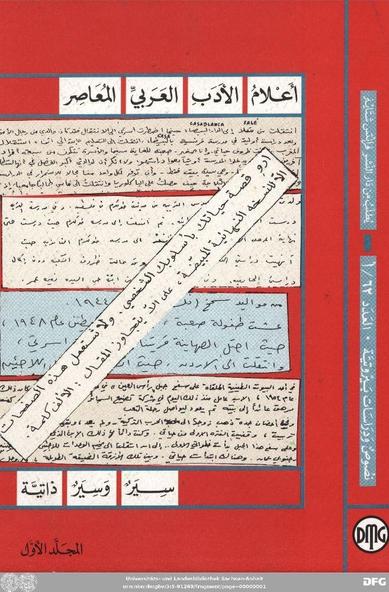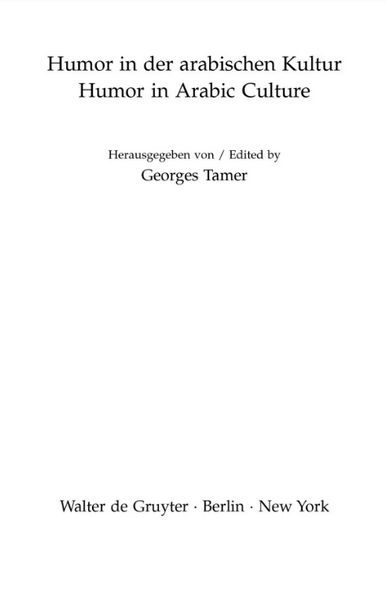I know Arabic can be tricky for English speakers, but, with all the "gift jet" news, I swear I haven't heard a single US media person pronounce it anywhere near correctly. I'm not even being picky about rolling the r.
Recent searches
Search options
#arabic
#Islam #IslamicStudies #Fiqh #Arabic
In my article related to Islamic Fiqh/Jurisprudence, I attempted to define what exactly Fiqh is.
It is a misnomer to attribute Fiqh to merely mean law, per the common linguistic definition of law in most legal systems today.

This is a #graphic that I came up with a few years ago. It has the slogan in 7 languages: #Spanish, #Arabic, #Hebrew, #English, #Esperanto, #Farsi, and #French.
To get a fuller resolution copy as a PDF, go to Wikimedia Commons at:
https://commons.wikimedia.org/wiki/File:Palestinian_Lives_Matter_in_7_languages_(ES,_AR,_HE,_EN,_EO,_FA,_FR)_graphic_file_for_solidarity.pdf
#lang_EO #ARA #EO #EPO #ES #FAS #FRA #HEB #SPA #Español #Français
#PermanentCeasfireNow #EndBlockadeOfGaza
#RestoreFundsToUNRWA #StopGazaGenocide #IsraelWarCrimes #SolidarityWithPalestine is #NotAntisemitism
#EqualRightsForAllFromTheRiverToTheSea is #NotAntisemitic #JewHatredHurtsPalestine #Gaza #Israel #Palestine #MiddleEast #WestAsia #graphics #politics @palestine @israel
Arabic Jazz and Yazz Ahmed: A Music Between Homelands https://themarkaz.org/arabic-jazz-and-yazz-ahmed-a-music-between-homelands/ #jazz #Arabic
«Methlama by Tawfiq Dawi»
They are based in Amman, Jordan and run https://heyporterposter.com. They released this font with the #Arabic font collective https://ko-type.com
ht to @xhaos for showing it to me
#fonts #typography @typography@a.gup.pe @typography@lemmy.ca
While there I also accepted a chance to give an impromptu talk at Jean-Charles Coulon's fantastic working group at EHESS on medieval Arabic magical texts. 3/4
#CatchOfTheDay
#OpenAccess on
#MENAdoc:
"Aʿlām al-adab al-ʿarabī al-muʿāṣir: siyar wa-siyar ḏātīya" by Robert B. Campbell
[Stuttgart: Steiner, 1996]
Our friends at Think.Check.Submit. are looking for #volunteers to update the #Hindi, #Korean, #Vietnamese and #Arabic translations of the checklists.
Are you interested? Do you have colleagues who might want to help? Send an email to feedback@thinkchecksubmit.org
Read the latest TCS newsletter: https://thinkchecksubmit.org/?mailpoet_router&endpoint=view_in_browser&action=view&data=WzEwLCJlOTBlODVjMjY1Y2IiLDE2Mzk2LCJoNzVubWQ5amNka29na2djY2d3NGtjMGd3OGs4Y3dvYyIsNSwwXQ
https://www.europesays.com/2028952/ European journalists plan monitoring centre in… #AndTurkish. #Arabic #europe #kurdish #PublishingInEnglish #RudawIsABroadcastAndDigitalNewsNetworkBasedInTheKurdistanRegionOfIraq
Spring is here, and with it comes a new crop of #MTLiteracy infographics —in #Arabic! Many, many thanks to Raghad Alsulami for bringing these Arabic versions to life They are in #OpenAccess and can be downloaded from the project website:
https://sites.google.com/view/machinetranslationliteracy/home/teaching-resources?authuser=0
The importance of vocalization (the little sigils above and below the letters) in #Arabic.
Follow your dreams...
https://www.europesays.com/1995325/ President Barzani, Macron reaffirm strong… #AndTurkish. #Arabic #Conflicts #kurdish #PublishingInEnglish #RudawIsABroadcastAndDigitalNewsNetworkBasedInTheKurdistanRegionOfIraq #Syria
https://www.europesays.com/1992874/ Turkey, Iraq discuss cooperation against PKK… #AndTurkish. #Arabic #kurdish #PublishingInEnglish #RudawIsABroadcastAndDigitalNewsNetworkBasedInTheKurdistanRegionOfIraq #Turkey #turkiye
#Germany seeks to #deport #protesters
Submitted by webadmin on 9 April, 2025
"The German state has issued deportation orders for three #EUCitizens and one #American who have attended #ProPalestinian protests.
"Berlin immigration authorities issued the orders on 31 March, demanding that the four individuals leave Germany within one month or else face deportation. Their orders cite a protest in October 2024 in which masked individuals caused 'significant property damage, including #graffiti', as well as resisting arrest and calling a #police officer a '#fascist'.
"Unusually, three of the four orders also invoke the German principle of #Staatsräson, (“#StateReason”). This term originates from a speech #AngelaMerkel gave to the #IsraeliKnesset in 2008, asserting that #Israeli security was fundamental to the purpose of the German state.
"Staatsräson is not an officially defined term or codified anywhere in the German constitution or by German courts. At least two of the protestors are appealing the decision, with their lawyer telling Al-Monitor that it is a 'political concept, not a legal concept, and therefore unlawful'.
"In any case, the #deportation of #activists for #protesting should be opposed.
"The activists’ lawyer has drawn parallels to the case of #MahmoudKhalil in the US. 'I see similarities… It is weaponization of #ImmigrationLaw as a tool to silence #PoliticalDissent'. Khalil’s case may also lead to a debate on interpretations of the US constitution’s #FirstAmendment.
"Back in February, #Berlin police broke up a protest, citing a ban on '#ArabicChanting', the playing of #ArabicMusic, or giving a speech in #Arabic. In October 2024, police raided the homes of five men, four of whom were being investigated over 'authorship of #antisemitic social media posts'.
Clapping
"And after the joint Israeli-Palestinian documentary #NoOtherLand won an Academy Award, German culture minister Claudia Roth insisted that she was only clapping for Israeli director Yuval Abraham, not Palestinian director #BaselAdra. Several politicians, including the mayor of Berlin, called for her resignation. A torrent of public criticism was aimed at #YuvalAbraham for his acceptance speech, to which he responded: 'To stand on German soil as the son of Holocaust survivors and call for a ceasefire — and to then be labelled as antisemitic is not only outrageous, it is also literally putting Jewish lives in danger.'
"Israeli politicians cited German politicians when attacking the filmmakers themselves, and only weeks later, co-director #HamdanBallal was attacked by #IsraeliSettlers in the #WestBank, and removed from an ambulance by #IDF soldiers.
"German Staatsräson is less about assuring Israel’s right to exist, and more about giving a free hand to the #repressive policies of the Israeli right."
Source:
https://www.workersliberty.org/story/2025-04-09/germany-seeks-deport-protesters
#CriminalizingDissent #ProPalestineActivists #ProPalestine
#CriminalizingProtest #AntiProtestLaws
#GermanyPol #GermanAntiProtestLaws
#Authoritarianism #Fascism #RightWing #StudentProtesters #Zionism #BibiIsAWarCriminal #Enablers
https://www.europesays.com/1987038/ President Barzani discusses Turkey-PKK peace with… #AndTurkish. #Arabic #kurdish #PublishingInEnglish #RudawIsABroadcastAndDigitalNewsNetworkBasedInTheKurdistanRegionOfIraq #Turkey #turkiye
"Whenever the #author and #playwright Samantha Ellis tries to define her heritage to people, she often finds them correcting her. “So many times I’ve said I’m an #Iraqi #Jew and been… told ‘you mean you’re mixed’ or ‘which parent is which?’ or just ‘how weird’,” she writes in her richly detailed #memoir, in which she explores the complex, centuries-old history of the Iraqi-#Jewish community and its vanishing language, #Judeo-Iraqi #Arabic.
The daughter of Iraqi-Jewish #refugees who came separately to #London with their families during periods of persecution for the community in #Baghdad, Ellis is moved to seek out #stories, expressions and objects that will fill some of the gaps in that #history when she realises that she lacks the vocabulary to pass on the language of her childhood to her own young son."
@HonkHase
Yeah, I have to admit, this doesn't come to me with any surprise.
#Microsoft has contracts with #military and military contractors, therefor it shouldn't be surprising, that any #tech in their #portfolio is open for sale, especially the dual-use ones.
What surprised me in the last weeks, that #arabic family clans in #Gaza protested loud enough against Hamas, that (at least first) Al Jazeera ignored it, while international outlets seemed to pick it up.
But the #worst in my humble opinion that I didn't notice any loud response out of the other Arabic countries to support these protests, yet. I think this is equally irresponsible, as it looks like the definition of "collateral damage" the IDF takes into account on the behalf of the #israel government.
This whole #shitshow there is straining my tolerance for ambiguity to the max.
Rethinking Proto-Semitic
This week, I was stoked to attend a workshop in Marburg, Germany, entitled “Rethinking Proto-Semitic” and organized by profs Stefan Weninger and Michael Waltisberg. Despite some cancellations, the workshop had an amazing lineup of speakers—and a terrific atmosphere. Here’s my summary of the talks.
Leonid Kogan, “What can we learn from Eblaite on Proto-Semitic morphology?” Ongoing study and decipherment of the 24th-century BCE East Semitic language from Ebla, Syria shows the following features that are interesting for reconstruction:
- personal pronouns: independent 1sg. /ʔanā/, 1pl. /nuḥnū/, 2m.sg. /ʔatta/, 2m.pl. /ʔattunu/, 3m.sg. /suwa/, 3f.sg. /siya/; suffixed 1du. /-nay/, 1pl. /-nu/, 2du. /-kumay(n)/, 3du. /-sumay(n)/
- 3m.pl. prefix conjugation /ti-…-ū/
- t-perfect, as in Mesopotamian Akkadian
- autobenefactive use of the ventive /-am/
- no subjunctive marker -u, unlike Mesopotamian Akkadian (this is big)
- t-stem infinitives with both prefixation and infixation, like dar-da-bí-tum /tartappidum/ ‘to roam here and there’, cf. ra-ba-tum /rapādum/ ‘to roam’
- nominal oblique “masculine” plural ending /-ay/, as reconstructed for Sargonic Akkadian and Assyrian and compatible with Babylonian; unlike Central Semitic *-ī-na
- singular case endings preserved in the construct state and before pronominal suffixes, e.g. ba-lu da-a-tim /baʕlu daʕātim/ ‘owner of knowledge (nom.)’, me-gi-ru12-zu /migrusu/ ‘his favourite (nom.)’
- productive use of terminative *-is, e.g. DU-ti-iš /halaktis/ ‘for the journey’
- ‘twenty’ with -ū vowel like Central Semitic, not -ā like other languages
Maria Bulakh, “Intercalated *a as a plural marker in Soqotri and its implications for the reconstruction of Proto-Semitic”. While superficially hard to recognize (and Jorik and I didn’t attempt to in our paper on this subject), reconstruction of Modern South Arabian and especially Soqotri attest insertion of *-a- between the second and third radical of *CVCC- nouns in the plural. No external plural suffix though.
Me, “Rethinking the Proto-Semitic stative”. Slides here. Got some good suggestions for languages where I could go looking for a synchronic distinction between resultative *qatal-a and preterit *ya-qtul.
Me presenting. The audience was bigger than it looks here, although not much (around 15 people).Ahmad Al-Jallad, “Revisiting the post-verbal morphemes *-u and *-n(V) in Semitic: a proposal for a unified theory”. The different verbal suffixes/enclitics shaped like -u and -n(V) in Akkadian, Central Semitic possibly Modern South Arabian, and Gurage (South Abyssinian) could all descend from the Proto-Semitic *=u(m) locative, which gained various subordinating and durative meanings. Central Semitic *ya-qtul-u instead of *ya-qattal-u for the imperfect could show a collapse in the distinction between *ya-qtul and *ya-qattal related to the rise of the West Semitic perfect *qatal-a.
Michael Waltisberg, “Issues of reconstructive methodology in Semitics”. Based on his review of Rebecca Hasselbach(-Andee)’s 2013 Case in Semitic, Waltisberg discussed some methodological questions like whether our reconstructed Proto-Semitic represents an actually spoken language or just maps correspondences between different languages and whether there is room for dialectal diversity and different chronological stages within a protolanguage. (Prof. Hasselbach-Andee sadly had to cancel her planned attendance.)
Lutz Edzard, “Linguistic divergence and convergence in Arabic and Semitic revisited”. As the most protolanguage-sceptic scholar at the workshop, Edzard reviewed some of his problems with the linear-descent-only family tree model where every language in a family descends from a kind of ancestral singularity with no internal diversity.
Vera Tsukanova, “What can modern Arabic dialects reveal about the etymology of the L-stem in Semitic?” The development of the L-stem (*qātal-) in historical Arabic suggests that it is more likely that this stem originally had a concrete meaning like applicative that was bleached in some languages than that it was originally vague and acquired its specific meaning in pre-Arabic.
Eran Cohen, “Semitic k-based similative particles—comparative and diachronic aspects”. Different Semitic particles starting with k- can be diachronically related to each other according to recognized historical pathways of development.
Na’ama Pat-El, “Homomorphs and reconstruction”. We are probably not dealing with one, syncretic morpheme but rather two homophonous ones in the cases of 1) prefix conjugation 2m.sg./3f.sg. *t-; (2) f.sg. abstract noun/m.pl. adjective suffix *-ūt-; (3) f.sg. noun or adjective/weak root verbal noun or infinitive suffix *-t-. In the latter, most controversial case, Pat-El invoked some evidence that the verbal nouns like Biblical Hebrew šéḇeṯ ‘sitting’ (from y-š-b) are syntactically masculine (e.g. Ps 133:1).
Stefan Weninger, “The Semitic Urheimat question: a review of the proposals and some perspectives”. An overview of some proposed points of dispersal for the Semitic languages since the late 19th century, the main contenders being the Arabian peninsula and East and North Africa. In the Q&A, Kogan added his own suggestion, published in an Encyclopedia Aethiopica article: Canaan.
Walter Sommerfeld, “The concept of a common Semitic cultural area (‘Kish Civilization’) in the 3rd millennium”. Contemporary evidence shows that there is no basis for Ignace Gelb’s concept of a distinctly Semitic culture in Early Dynastic northern Babylonia.
Apart from these talks, we spent about half the time in unstructured panel discussions, on phonology, morphology, methodology, and classification/Urheimat questions. Each discussion was kicked off by a short, stimulating talk, mostly by attendees who did not present full papers: Martin Kümmel, Michaël Cysouw, and Aaron Rubin. This was an experimental feature of the workshop, and I’m on the fence about it; the discussions were certainly fun and a lot of interesting points were brought up (e.g. Kogan: linguistic paleontology shows that Proto-Semitic speakers did know hyraxes but did not know oryxes, and only Canaan is [+hyrax][-oryx]), but it felt like they yielded fewer concrete insights than regular talks would have. It was a nice way to get some more people involved, though, also from adjacent fields (Indo-European/Indo-Iranian and Caucasian/Germanic linguistics).
All in all, it was wonderful to be able to fully geek out about Proto-Semitic and its daughters for a couple of days. There’s plans to publish proceedings, so hopefully in a few years you’ll be able to read all about these topics in full detail. Stay tuned.
#CatchOfTheDay
#OpenAccess on
#MENAdoc:
"Humor in der arabischen Kultur" von Georges Tamer (Ed.)
[Berlin [u.a.], 2009]



